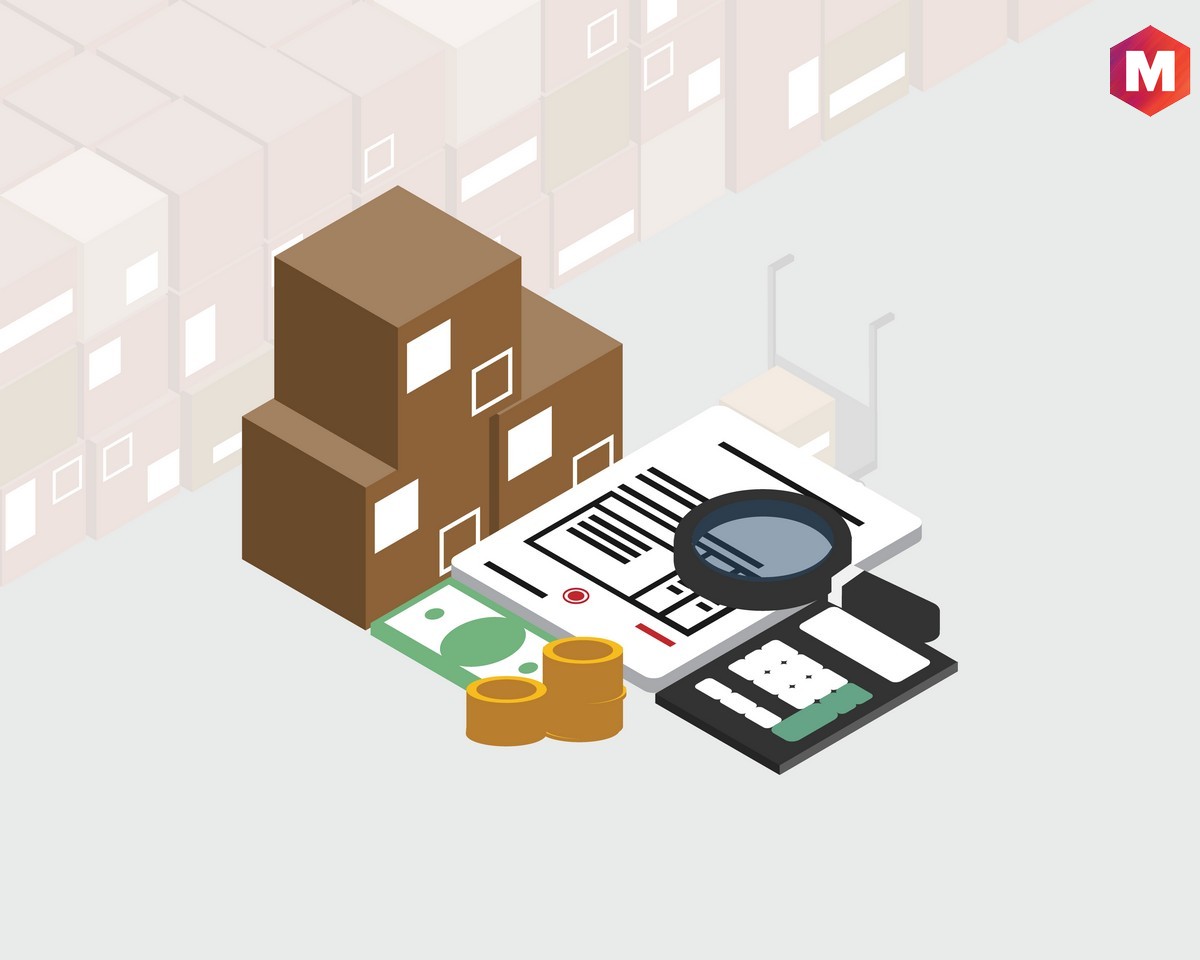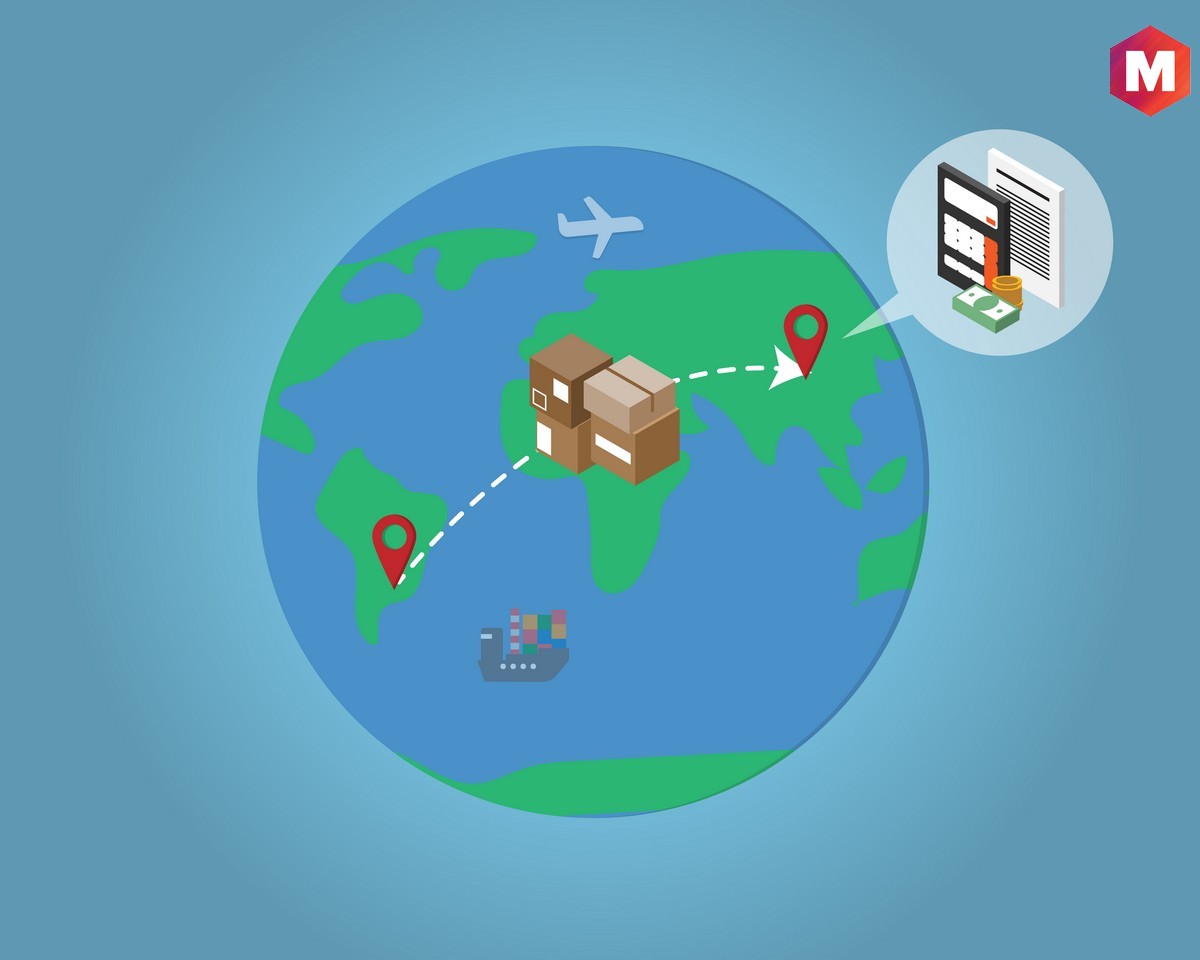Delivered duty paid (DDP) is a delivery Incoterm where the seller is responsible for paying all costs and risks associated with delivering the goods to the buyer, including import duties and taxes. This means that the seller delivers the goods to the buyer at an agreed-upon location and takes on all risks and costs associated with getting the goods there, including paying any duty or tax due.
DDP is one of the most comprehensive Incoterms, providing the maximum level of protection for the buyer. Because the seller is responsible for all risks and costs associated with delivery, DDP is often used when the buyer and seller are in different countries and when the goods being shipped are high value or sensitive.
Table of Contents
What is Delivered Duty Paid (DDP)?
Delivered duty paid (DDP) is a term of delivery whereby the seller incurs all risks and expenses associated with delivering the goods to the buyer, including costs related to duties, taxes, and other import fees. Hence, in this, the seller assumes all the costs and risks associated with delivering the goods to the buyer, including paying any customs or import duties.
DDP is commonly used for international shipments where the buyer and seller reside in different countries and when the goods being shipped are high-value items or commodities that require special handling. DDP is one of the most inclusive terms of delivery, providing maximum protection for the buyer.
Meaning of Delivery Duty Paid (DDP)
A shipping agreement called “DDP” puts the greatest burden on the seller. The seller is responsible for importing clearance, tax payment, and import duty in addition to shipping costs. When the goods are delivered to the buyer at the port of destination, the risk passes to him. Before signing off on the deal, both buyer and vendor must agree on all payment specifics as well as the final destination.
The International Chamber of Commerce (ICC) created DDP in order to worldwide standardize freight, which is why it is most often utilized in international transactions. Because buyers assume less liability and fewer expenses throughout the shipping process, DDP gives them several advantages. As a result, the seller must shoulder more responsibility and spend more money.
DDP Agreement: Buyers and Sellers’ Responsibilities
This agreement stipulates that the supplier (seller) is responsible for all shipping arrangements, including import customs expenses, until the delivery of the products to the buyer. DDP indicates that the supplier must cover all import and export expenses, and the buyer is not responsible for any expenses connected with transporting the cargo.
Buyer’s Responsibilities
The buyer is only responsible for receiving the merchandise and not for any aspect of the logistics process. The unloading procedure is one part of receiving the goods. Because the buyer is solely responsible for shipping costs, import and export duties, and taxes, any overage fees are likely to be charged to them.
Seller’s Responsibilities
The seller is responsible for all risks and expenses associated with delivering the goods to the buyer, including:
- Costs related to duties, taxes, and other import fees
- Shipping costs
- Import clearance
- Tax payment
DDP Timeline
- Seller dropping off the package using a carrier- Seller liability starts
- The package arrives at the port- Seller liability continues
- The package goes through customs and is delivered to the buyer-Seller liability ends, and Buyer liability starts
- The buyer receives the package- The buyer’s liability ends.
Advantages of DDP for the Buyer
DDP provides maximum protection for the buyer because the seller is responsible for all risks and expenses associated with delivery. This means that the buyer does not have to worry about paying any duty or tax due on the goods. Additionally, DDP ensures that the goods will be delivered to the buyer at an agreed-upon location.
Some of the advantages of DDP for the buyer include:
1. No responsibility for delivery costs
The buyer is not held responsible for any delivery expenses, taxes, or any other surprise charges that may arise throughout the shipping and delivery procedure. This can frequently be useful because there may be extra expenditures when sending things across borders, as both nations might demand inspections of varying levels, which are always passed on to the shipper.
2. Maximum protection
DDP is one of the most inclusive terms of delivery, providing maximum protection for the buyer. This is due to the fact that the seller is responsible for all risks and expenses associated with delivering the goods to the buyer.
3. No need to worry about import duties or taxes
The buyer does not have to worry about paying any duty or tax due on the goods because the seller is responsible for these costs. This can be a significant advantage because it allows the buyer to avoid any potential delays or penalties that may occur if they are unable to pay these fees.
Disadvantages of DDP for the Seller
The main disadvantage of DDP for the seller is that they are responsible for all risks and expenses associated with delivery, including import duties and taxes. This can be a significant cost for the seller, especially if the buyer is in a different country. Additionally, DDP can be a complex shipping agreement to navigate because of the various rules and regulations that apply to importing goods into different countries.
Some of the disadvantages of DDP for the seller include:
1. All risks and expenses are borne by the seller
The seller is responsible for all risks and expenses associated with delivery, including import duties and taxes. This can be a significant cost for the seller, especially if the buyer is in a different country.
2. Can be complex to navigate
DDP can be a complex shipping agreement to navigate because of the various rules and regulations that apply to importing goods into different countries. This can make it difficult for the seller to ensure that they are in compliance with all applicable laws and regulations.
3. May require additional insurance
The seller may be required to purchase additional insurance to cover the risks associated with delivery. This can add to the cost of shipping the goods and may not be covered by the seller’s existing insurance policy.
DDP Disadvantages for the Buyer
The main disadvantage of DDP for the buyer is that they are not able to inspect the goods before they are delivered. This means that the buyer may not be aware of any damage to the goods until they are delivered. Additionally, the buyer is responsible for paying any import duties and taxes due on the goods.
Disadvantages of DDP for the buyer include:
1. The buyer is not able to inspect the goods before they are delivered
The buyer may not be aware of any damage to the goods until they are delivered.
2. The seller is going to choose the cheapest delivery options
The seller is likely to choose the cheapest delivery options available, which may not be the most reliable or fastest.
When to use DDP Agreement?
DDP is typically used when the buyer wants to minimize their risk and have the seller bear the responsibility for delivery. This can be a good option for buyers who are concerned about potential delays or damage to their goods during shipping.
Additionally, DDP can be a good choice for buyers who want to avoid paying import duties and taxes on their goods. This can be a significant advantage for buyers who are located in different countries from the seller.
Ultimately, whether or not to use a DDP agreement is a decision that should be made on a case-by-case basis. There are advantages and disadvantages to using this type of agreement, and it is important to weigh all of the factors before making a decision.
When not to use DDP
DDP is not typically used when the buyer is looking for the fastest or most reliable delivery option.
Additionally, DDP is not usually used when the seller is located in the same country as the buyer. In these cases, it is typically more advantageous for the buyer to choose another type of shipping agreement.
Difference between DDP and DAP
DDP and DAP are two similar shipping agreements that have some key differences
DDP is a delivered duty paid agreement, which means that the seller is responsible for all risks and expenses associated with delivery, including import duties and taxes.
DAP is a delivered at place agreement, which means that the seller is responsible for delivery to the buyer’s specified location. The buyer is then responsible for any further transportation costs, as well as import duties and taxes.
Hence, in DDP, the seller is supposed to pay for all other shipping expenses, duties, and taxes while the buyer would be just responsible for the cost of unloading their cargo, but in DAP, the seller is only responsible for just paying the shipping costs.
What is the meaning of DDU and DDP?
DDU and DDP are two similar shipping agreements but there are some notable differences between both-
DDU stands for delivered duty unpaid, which means that the seller is responsible for delivery to the buyer’s specified location. The buyer is then responsible for any further transportation costs, as well as import duties and taxes.
DDP stands for delivered duty paid, which means that the seller is responsible for all risks and expenses associated with delivery, including import duties and taxes.
Hence, in DDU, the buyer is supposed to pay for all other shipping expenses, duties, and taxes while the seller would be just responsible for the cost of shipping their cargo, but in DDP, the seller is responsible for paying all shipping expenses, duties, and taxes.
Choosing between these is an important decision that should not be taken lightly. There are a few key things to keep in mind when making this decision:
- The type of goods being shipped
- The location of the buyer and seller
- The delivery timeline
- The cost of shipping
- The import duties and taxes for the destination country
- The level of risk involved in the shipment
When choosing between DDU and DDP, it is important to weigh all of these factors carefully in order to make the best decision for your particular situation.
Who pays freight on DDP?
The seller is responsible for paying the freight charges under a delivered duty paid agreement. This is because the seller is responsible for all risks and expenses associated with delivery, including import duties and taxes.
Does DDP include Customs Clearance?
Yes, delivered duty paid agreements typically include customs clearance. This is because the seller is responsible for all risks and expenses associated with delivery, including import duties and taxes.
Conclusion!
On the ending note, it is clear that DDP is an agreement in which the seller is responsible for all risks and expenses associated with delivery, including import duties and taxes.
The DDP shipment is often used in international trade, as it can simplify the customs and delivery formalities for buyers.
Under a Delivery Duty Paid (DDP) agreement, the seller is responsible for ensuring that the goods are properly packaged and labeled for export, obtaining any export licenses that may be required, and arranging for delivery to the buyer.
The seller is also responsible for paying any customs duties that may be due on the goods. What do you think? Let us know in the comments below!
Liked this post? Check out the complete series on Business

